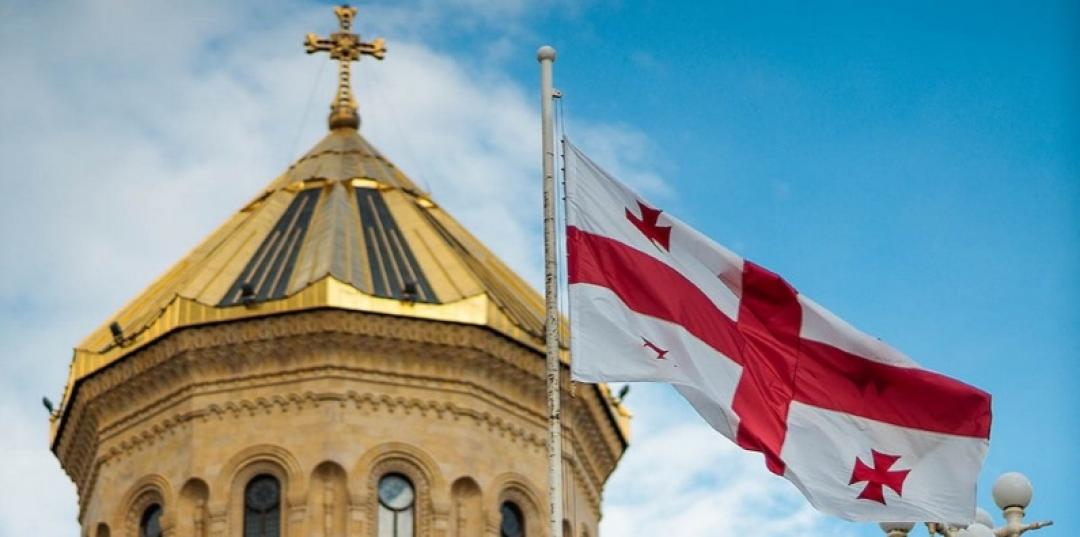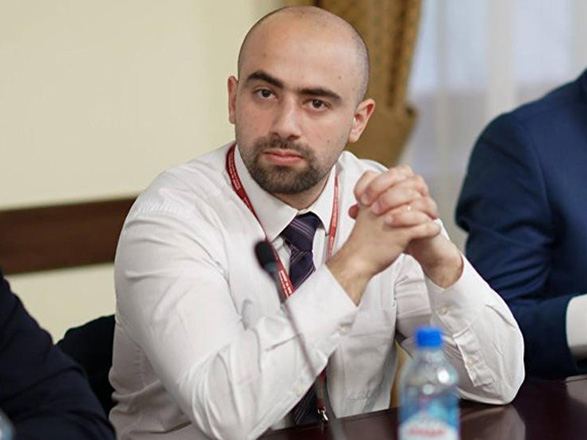
Coronavirus in Georgia: Dilemma with the Orthodox Church

Contributed by Archil Sikharulidze, Co-founder of the Center for Systemic Political Research (CSPR), Editor of Georgian Journal of Systemic Politics (GJSP), Invited Lecturer at Tbilisi State University (TSU).
 Georgia has joined the group of many other states with its first recorded death on April 4. The local government in collaboration with leading virologists tried hard to avoid the precedent and continue comparatively successful fight against coronavirus pandemic. Praised internationally for effective and efficient policy, the leadership of Georgian Dream, headed by PM Giorgi Gakharia introduced nationwide quarantine on March 31, including curfew to stop proliferation of the virus in the state by enforcing the so-called “social distancing” concept.
Georgia has joined the group of many other states with its first recorded death on April 4. The local government in collaboration with leading virologists tried hard to avoid the precedent and continue comparatively successful fight against coronavirus pandemic. Praised internationally for effective and efficient policy, the leadership of Georgian Dream, headed by PM Giorgi Gakharia introduced nationwide quarantine on March 31, including curfew to stop proliferation of the virus in the state by enforcing the so-called “social distancing” concept.
And while the absolute majority of Georgians support the government’s approach, Georgian Dream found itself in rivalry with the state’s one of the most trusted and strongest institutions – Georgian Orthodox Church. Particularly, the lion’s share of Georgian priests initially refused to follow the new regulations arguing that the flock must attend religious meetings; furthermore, they even refused to change some aspects of the rituals to avoid spread of the virus. Finally, officials are now trying to persuade the church to postpone celebration of one of the most respected and holy religious holidays – Easter.
Hesitations and inconsistency of the ruling party with regard to Orthodox Georgian Church’s behavior split local society on the so-called liberals, conservatists and neutrals: the first group arguing that this is a grave violation of superiority of the law (secular state), others considering the happening as an assault on Orthodox Christianity (the GOD) and the neutrals being simply too occupied by everyday routine.
Above the Law
Spirituality is an inherent part of Georgian society. Georgia, a historically strongly Orthodox Christian entity, tries to carefully nurture its heritage and is especially sensitive to the issue of religious freedom due to its Soviet past when all denominations were oppressed by communists. The religion played even more important role during and after the collapse of USSR when the Georgian Orthodox Church actually became the only coherent and trustworthy institution in the country. Governments used to come and fall but the church was always there as a “painkiller” for a physically and emotionally exhausted population. This objective reality made it a nation-wide “influencer”, an important political and social actor, a decision-maker. Thus, the state, on the one hand, and the entity, on the other hand, signed in 2002 the so-called – concordat – constitutional agreement recognizing the historic role of the Apostolic Autocephalous Orthodox Church of Georgia in building, strengthening and maintaining statehood and the Georgian nationhood in general. Furthermore, it granted the church and its representatives additional rights and protections that raised the institution above any other religious denomination.
Representatives of the so-called liberals, mainly civil society organizations and some other actors, have been troubled by the concordat arguing that both, the state and the church, are violating the principles of equality and secular state for years. These arguments have been re-iterated and strengthened during the first days of the COVID-19 pandemic when Orthodox priests refused to follow strict regulations set by the Georgian Dream, even threatening to retaliate if the ruling party dares to restrict spiritual rituals. This comes alongside comparatively minor religious denominations immediately showing social responsibility by temporarily halting activities and calling on their flocks to obey the law. The government, being caught between the hammer and the anvil, hesitated whether to react on the disobedience raising additional concerns that the Georgian Orthodox Church is truly above the law.
The ruling party is still at the crossroad: it should maintain the law while try to avoid rivalry with one of the most trusted institutions right before the elections.
Politics of Faith
It is not a secret that Georgian politicians actively use various religious groups for political purposes. This is especially true during election campaigns when not only Georgian Orthodox Church but also Muslim community and other groups are being dragged into political processes. Political actors are extremely keen to use it to gain additional electoral support by giving a wide range of promises that are usually not implemented later on.
Nevertheless, due to the Georgian Orthodox Church’s vast societal support manages to bargain more benefits from local government. Moreover, its representatives are aware of the existing reality and frequently use this as a quite effective trigger against ruling political elites. On the other hand, Georgian governments were always trying to “conclude” political alliance with the institution to strengthen legitimacy and attract more followers; creating an illusion of people’s power.
Thus, both, the ruling Georgian Dream and the political opposition, behave according to the established tradition. In the wake of the extremely important upcoming parliamentary elections set for October this year, the government is unwilling to fall into confrontation with the church while adversaries are trying to gain the hearts and minds of less privileged religious groups by voicing the concept of equality. Conventionally, even during the coronavirus pandemic faith is being deployed by all interested parties for political and other benefits.
By and large, the Georgian Dream is still struggling to handle the dilemma with the Georgian Orthodox Church in a sophisticated way to avoid allegations of breaking principles of secular state, on the one hand, and, to keep political support of the institution, on the other hand. The Easter holidays are coming and state officials have already expressed their willingness to observe it in accordance with the “social distancing” approach (being at home). This is an additional strong message to the priests that the law must be followed. Thus, the upcoming holidays will be yet another test for the Georgian Dream government and will, probably, finalize the struggle. At the same time, political opponents shall try hard to use this confrontation to unveil political incompetence of the establishment. All in all, parliamentary elections are coming and even the COVID-19 pandemic cannot stop it.





